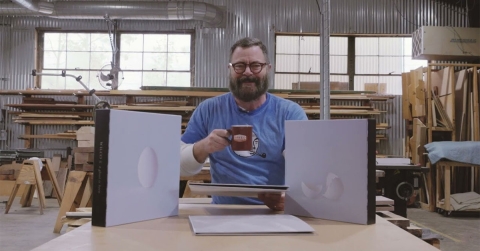Rokia Traoré is the subject of a feature interview on Pitchfork today, in which the Malian singer-songwriter now living in France discusses her career and describes the inspiration and influences behind her latest Nonesuch release, Tchamantché. "Over 10 years and four incredibly well-received albums," says Pitchfork, "Rokia Traoré has become one of world music's great synthesizers, combining the rhythms and traditions of diverse cultures from Africa and Europe into a complex sound that only she could create."
Rokia Traoré is the subject of a feature interview on Pitchfork today, in which the Malian singer-songwriter discusses her career and describes the inspiration and influences behind her latest Nonesuch release, Tchamantché.
"Over 10 years and four incredibly well-received albums," writes interviewer Stephen M. Deusner, "Rokia Traoré has become one of world music's great synthesizers, combining the rhythms and traditions of diverse cultures from Africa and Europe into a complex sound that only she could create. The guitarist and vocalist, who was born in Mali and now lives in France, adds some American rock flourishes to her latest album, the darkly haunting Tchamantché, setting the deep tones of a Gretsch guitar and the steady rhythms of a drum set alongside African percussion and n'goni."
"My way of writing also changed and because of the guitar," Traoré tells Deusner, "from Malian instruments and orchestrations to a different way or orchestrations changing my way of arrangement. At the same time, I don't know if it's due to my age, that I'm older now, [but] I love the essentials. I don't like the things around us that are a kind of mirage. There are some things around us that are not actually useful. I didn't know that before. It's very new for me to understand. That became my way of writing: I can see also the new myself."
Read the interview at pitchforkmedia.com.
- Log in to post comments



